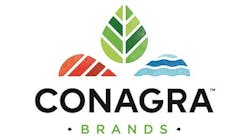It takes attention to many details to create a profitable food business, including the freshness of ingredients, the right equipment and a dedicated, service-oriented workforce Even with these ingredients in place, though, an accident, a lawsuit, an act of nature or a deliberate act by a disgruntled ex-employee can destroy a business. Businesses that are protected against such risks are more likely to succeed long-term.
Following are six specific risks that those in the food industry should be especially careful to manage:
- Coverage for Supply-Chain Risk -- The food industry is heavily dependent on its suppliers. Yet supply delivery can be interrupted by many factors, including adverse weather, infrastructure issues, price increases or damage to a supplier location. Loss of even one dependable supplier can lead to a loss of income, and can affect the quality, consistency and service of a food service provider.
Business interruption insurance can cover the loss of business income and extra expenses that result when a supplier located within a policy territory fails to deliver because of damages resulting from a covered cause of loss.
Dependent properties should be insured with a limit of at least $50,000. If your business depends on foreign locations, make certain your carrier can provide coverage for them, as they are likely more prone to supply disruption than domestic suppliers. Regularly check your limit against a real-world case of supply disruption for a business that’s similar to yours.
- Equipment Risk Management -- All food businesses depend heavily on their equipment, much of which is highly automated. Imagine what would happen to a food business if the refrigeration were not working properly. When a mechanical failure takes place, the business often must close and face a loss of income.
Equipment breakdown insurance covers the cost of mechanical breakdowns, damage caused by power surges, operator error and more. Business interruption insurance covers any income lost because of equipment failure.
Craig M. Kwitoski is vice president and food industries div. manager for SullivanCurtisMonroe, a full-service insurance agency with offices throughout Southern California. With more than 80 years of experience and nearly 200 employees, SCM is certified in the application of hazard analysis and critical control points (HACCP). For additional information, visit www.sullivancurtismonroe.com.
Some carriers will help prevent breakdowns by offering infrared testing, inspections and assistance in sourcing replacements for damaged equipment.
- Spoilage and Contamination Coverage -- Power outages and other issues beyond your control can result in costly spoilage or contamination of food, which could result in costly damage to your business and lost income.
Spoilage coverage with limits of at least $250,000 is recommended, with the ability to increase limits. Food is worth more at certain times of year than others, so your carrier should be willing to increase your limit during your peak season by about 25 percent.
- Food Safety and Recall Risk -- An estimated 48 million illnesses are borne by food in the U.S. each year, resulting in 128,000 hospitalizations and 3,000 deaths, according to the Centers for Disease Control.
Food poisoning from contaminated food can cause widespread illness and even death, so coverage of up to $25 million is recommended. Your business will need coverage not only for protection against lawsuits, but to compensate for lost market share and reduced goodwill. In addition, a limit of at least $100,000, with the flexibility to increase limits, is recommended to cover the cost of withdrawing a product from the market.
Many food manufacturers make products for others, which are sold under the customer’s label, so coverage should include reimbursement for recall costs incurred by others.
The best carriers provide loss-control services that can help your business develop a quality control plan. Services typically include batch testing, recordkeeping and product identification, all of which can reduce the risk of food safety problems.
- Computer and Internet Disruption Protection -- Cybercrime is becoming increasingly common: 46 percent of companies experience a data breach. Yet only one in 10 businesses has cyber-liability coverage. Restaurants and some other food industry businesses are at particular risk, because of the large amount of personal and financial data, including credit card and bank account numbers, they keep on file.
A computer hacker or virus can also cause significant damage to your business. A hacker may damage your website or create a virus that results in a physical loss or damage to computer equipment. Business interruption insurance with a limit of at least $10,000 is recommended to cover lost income caused by interruptions in computer operations.
Cyber-liability insurance covers data breach services and expenses, including identity restoration, forensic analysis, costs of notification and more. It also covers other expenses, such as legal services and public relations services.
Food businesses should also protect their computer equipment and files, and train employees about the importance of information security. Using passwords and data encryption, and keeping anti-virus and anti-malware protection up to date also helps.
Taking these steps can dramatically increase the probability of long-term business success. However, every business is different. It’s best to discuss your business with your insurance agent to make certain there are no significant gaps in your coverage.

